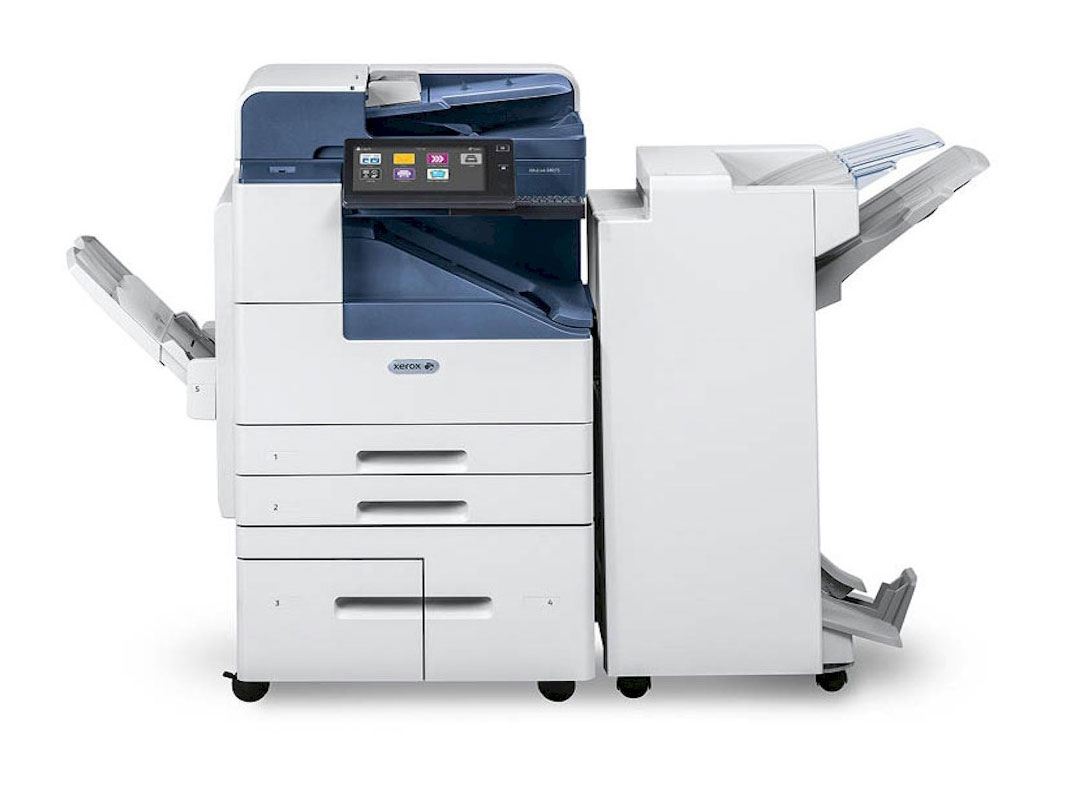Cost To Lease A Copier
Copier Lease FAQ
- Cost Of Leasing A Copier?
- Is It Better To Lease Or Buy A Copier?
- Pros Of Leasing A Copier?
- How Do Printer Leases Work?
Cost Of Leasing A Copier?
The vast majority of businesses opt to lease copiers, rather than buy them outright. However, that doesn’t necessarily mean a lease is the best way to go. The decision should be based on your individual needs and preferences.
Copier leases generally span one to five years. You’ll make monthly payments until the lease term expires. Then, you can opt to return the copier, purchase it or trade it in for a newer model.
With this in mind, let’s look at all the benefits that come with leasing a photocopier.
Cost Of Leasing A Copier
The cost of a lease varies based on the type of copier you choose, your credit history and the length of the lease. A $10,000 copier might cost $10,500 if you spread the payments over 12 months and $12,500 if you spread the payments over 60 months, or five years.
Most leasing companies also offer a $1 buyout option. For a few extra dollars per month, you have the option to purchase the equipment at the end of the lease term for just $1, rather than fair market value.
It’s easy on budgets - Pros of Leasing a Copier
Lower upfront costs - Leases rarely require a downpayment, so you can acquire the latest technology without shelling out a lot of cash. This is especially useful for small business that do not have a lot of cash flow.
Predictable monthly payments - Knowing exactly how much you’ll pay each month for the copier is helpful for budgeting purposes.
Option to upgrade - When the lease term expires, you can trade-in your old copier for a newer model with better technology.
Move with technology, don’t get left behind
Technology is evolving – and it’s evolving fast. The usage of technology tends to decline over a period of time as much newer and efficient models hit the market and this is where leasing really does come into its own. When leasing a copier, you can benefit from having the newer models installed as and when they’re released so that they’re continually evolving as your business evolves meaning that you don’t get left behind with the dinosaur tech that would make Bill Gates shudder.
Owning a copier means that you will have to make a large re-investment to upgrade your tech and this can mean large overheads ahead and who on earth wants that? Lease, grab yourself a deal with a copier that suits your usage requirements and upgrade on the fly to newer models – surely a win-win, no?
Is it better to lease or buy a copier?
For businesses with high printing and copying demand and large workgroups, a laser printer (or digital copier) makes sense. These devices come in a range of models. High-end model laser printers/copiers tend to be big in every way: They often take up significant floor space, support a range of paper sizes, deal with high print volumes – and often have a big price tag to match. Machines may range from the low thousands to more than $10,000.
For an individual or a business, that can be a large bite of budget to break off. And the initial investment doesn't include the ongoing costs of a laser printer, such as toner replacements and paper, nor the inevitable maintenance and repairs.
Last word
When all is said and done, unless you’re going to use a copier extensively and need a dedicated one at the heart of your business, leasing is certainly the way to go. If you’re unsure of where to start, I recommend checking out Photocopier leasing from JR Copier as a good start. Happy copying!
A lease is a contractual arrangement calling for the lessee (user) to pay the lessor (owner) for use of an asset. Property, buildings and vehicles are common assets that are leased. Industrial or business equipment is also leased. ... The term rental agreement can refer to two kinds of leases.
Copier Sales & Leasing
JR Copier Office Equipment Supplier
NOV


About the Author:
JR Copier is a company that specializes in office equipment since 1989, we carry a full line of new and gently used copiers & laser printers, to meet any demand across the Continental US.